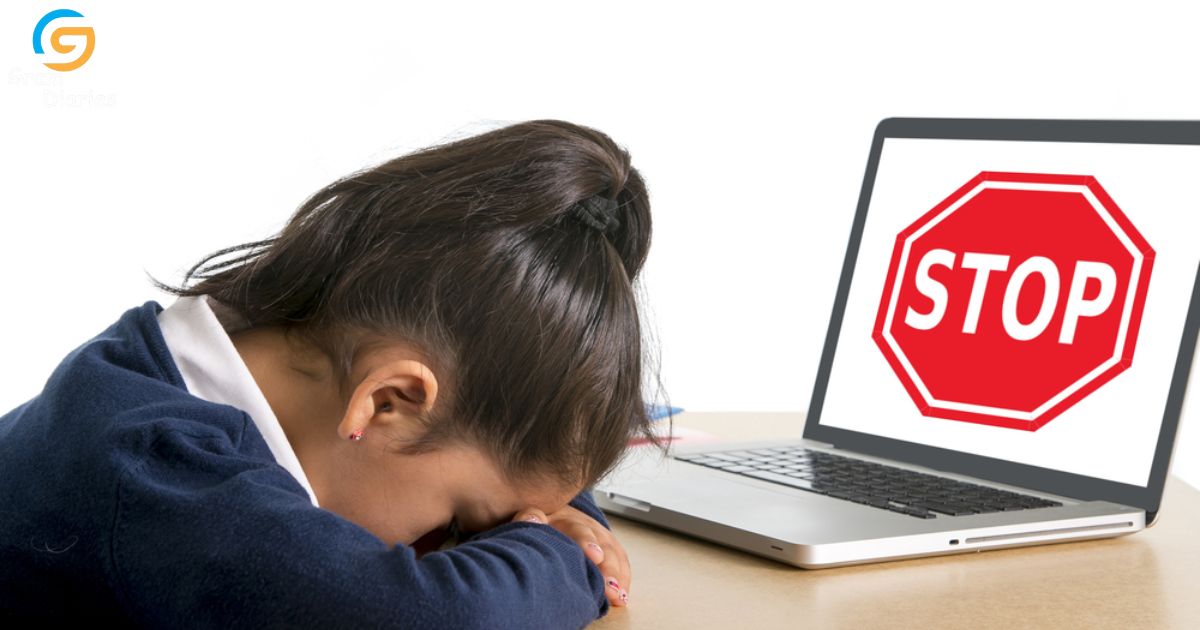In an era where social media platforms have become an integral part of our lives, it is not uncommon for individuals, particularly young women, to engage in the act of deleting their Instagram posts.
This seemingly innocuous action often signifies a deeper meaning, one that involves personal growth, privacy concerns, and the intricate dynamics of self-esteem.
As we delve into the various motivations behind this phenomenon, we discover a complex tapestry of evolving priorities, changing aesthetics, and the quest for authenticity in an interconnected world.
Key Takeaways
- Girls may delete their Instagram posts as a means of personal growth and reflection, questioning whether their posts truly reflect their values and aspirations.
- Privacy concerns and online safety, including protecting personal information and managing digital footprints, can be reasons for girls to delete their Instagram posts.
- Cyberbullying and harassment are prevalent issues, and deleting Instagram posts may be a way to reduce the risk of being targeted.
- Social comparison and self-esteem can be negatively impacted by social media, leading girls to delete their Instagram posts in order to cultivate a healthier relationship with the platform.
Personal Growth and Reflection
Personal growth and reflection are key components in understanding the motivations behind a girl’s decision to delete her Instagram posts.
In today’s digital age, social media platforms like Instagram have become significant tools for self-expression and validation. However, as individuals mature and develop, their values and priorities may shift, leading them to question the authenticity and purpose of their online presence.
Engaging in personal growth and reflection allows individuals to evaluate their online behavior and align it with their evolving sense of self. It enables them to examine whether their Instagram posts are truly reflective of their values and aspirations.
Privacy Concerns and Online Safety
Privacy concerns and online safety are prominent issues in today’s digital age. Protecting personal information is crucial as it helps prevent identity theft and online scams.
Additionally, cyberbullying and harassment have become prevalent, highlighting the need for individuals to be cautious about what they share online.
Managing one’s digital footprint is essential in maintaining a positive online reputation and safeguarding privacy.
Personal Information Protection
In light of the increasing number of cyber threats, it is crucial for individuals to exercise caution and implement effective measures to safeguard their sensitive data. The protection of personal information has become a paramount concern in today’s digital age.
According to recent studies, cybercrime has been on the rise, with hackers constantly finding new ways to exploit vulnerabilities in online systems. This has led to an increased awareness among individuals about the importance of personal data protection. People are now more cautious about sharing personal information online and are taking steps to secure their data.
This includes using strong passwords, enabling two-factor authentication, and regularly updating security software. Additionally, individuals are also being mindful of the information they provide on social media platforms, as excessive sharing can make them more susceptible to identity theft or targeted cyber attacks.
Overall, the growing awareness and implementation of effective protection measures are crucial in ensuring the security of personal information in the digital era.
Cyberbullying and Harassment
The rise of cyberbullying and harassment has prompted individuals to take proactive steps in ensuring their online safety and well-being. According to a recent survey conducted by the Pew Research Center, about 59% of teens have experienced some form of cyberbullying or harassment. This alarming statistic highlights the need for individuals to be vigilant in managing their online presence.
One way individuals are addressing this issue is by deleting their Instagram posts. By removing past content, individuals aim to reduce the risk of being targeted by cyberbullies or having their personal information misused. However, deleting Instagram posts is just one aspect of digital footprint management.
In the next section, we will explore the broader concept of managing one’s digital footprint and the importance of doing so in today’s digital age.
Digital Footprint Management
One effective way to address privacy concerns and ensure online safety is by actively managing our digital footprints. This involves regularly monitoring and controlling the information we share and the impact it may have on our online reputation.
With the increasing prevalence of social media platforms, individuals are becoming more aware of the potential risks associated with sharing personal information online. According to a survey conducted by Pew Research Center, 64% of adults are concerned about the amount of personal information that is available online.
Deleting Instagram posts, for example, can be a proactive step towards maintaining privacy and protecting oneself from potential online threats. By regularly reviewing and curating our digital presence, we can reduce the risk of identity theft, cyberbullying, and other forms of online harassment.
It is crucial to recognize the significance of managing our digital footprints and taking proactive measures to safeguard our online privacy.
Social Comparison and Self-Esteem
Engaging in social comparison can significantly impact an individual’s self-esteem. It is a natural human tendency to compare ourselves to others, particularly in today’s digital age where social media platforms provide constant opportunities for comparison.
Research has shown that individuals who engage in frequent social comparison on social media platforms are more likely to experience lower levels of self-esteem. This can be attributed to the fact that social media often presents a distorted reality, where individuals showcase only the best aspects of their lives, creating an unrealistic standard for comparison. Additionally, the constant exposure to curated and filtered images can lead to feelings of inadequacy and self-doubt.
It is important for individuals to be mindful of the impact of social comparison on their self-esteem and to cultivate a healthy relationship with social media by focusing on their own personal growth and achievements rather than comparing themselves to others.
Changing Aesthetics and Content Direction
Given the evolving nature of social media platforms, it is essential for individuals to adapt their aesthetics and content direction to remain relevant and engage with their target audience effectively. With the constant updates and changing trends, it is crucial to keep up with the latest features and styles to maintain a strong online presence.
Here are three key considerations for changing aesthetics and content direction:
- Stay updated with platform changes: Social media platforms frequently introduce new features and algorithms that can impact the visibility of your content. It is important to stay informed and adapt your aesthetics and content strategy accordingly.
- Understand your target audience: Analyze your audience demographics, interests, and preferences to create content that resonates with them. Conducting regular surveys or analyzing engagement metrics can provide valuable insights.
- Follow industry trends: Keeping an eye on the latest trends in your industry can help you create relevant and engaging content that appeals to your target audience. Stay updated with popular hashtags, viral challenges, and emerging content formats to stay ahead of the curve.
Relationship Changes and Breakups
The recent surge in relationship changes and breakups has sparked discussions on the impact of social media on romantic relationships and the emotional toll it can take on individuals. Social media platforms have become an integral part of our lives, with many people using them to showcase their relationships and seek validation from others. However, studies have shown that excessive use of social media can lead to feelings of jealousy, insecurity, and low self-esteem, which can ultimately contribute to relationship dissatisfaction and even breakups.
Additionally, the constant comparison to other couples’ seemingly perfect lives portrayed on social media can create unrealistic expectations and put undue pressure on a relationship. As individuals navigate the complexities of maintaining healthy relationships in the digital age, it is important to be mindful of the potential negative effects of social media on emotional well-being and strive for a healthy balance between online and offline interactions.
Transitioning into the subsequent section about career and professional reputation, it is worth exploring how social media can also impact one’s professional life.
Career and Professional Reputation
Maintaining a strong career and professional reputation is of utmost importance in today’s competitive job market. Employers often rely on online platforms to gather information about potential candidates, making it crucial to manage one’s online image effectively.
Furthermore, a positive online presence can significantly impact future job prospects, as it reflects an individual’s professionalism, expertise, and ability to navigate the digital landscape.
Future Job Prospects
One of the key challenges individuals face when considering their future job prospects is ensuring they have enough relevant experience to stand out in a competitive market. In today’s job market, employers are increasingly looking for candidates who have not only the necessary qualifications, but also practical experience that demonstrates their skills and abilities.
To address this challenge, individuals should consider the following strategies:
- Internships or apprenticeships: These opportunities provide hands-on experience in a specific field and allow individuals to learn from professionals in the industry.
- Volunteering or freelancing: These experiences not only provide valuable skills and experience, but also demonstrate a commitment to giving back and a proactive approach to personal and professional growth.
- Professional development courses or certifications: These can help individuals gain specific skills and knowledge that are relevant to their desired career path.
Online Image Management
Effective online image management is crucial for professionals as it directly impacts their career advancement opportunities. In today’s digital age, employers and colleagues often form impressions based on an individual’s online presence. A positive online image can enhance one’s professional reputation, while a negative image can hinder career growth. Therefore, professionals must carefully manage their online persona to create a favorable impression.
Data shows that 70% of employers use social media to screen potential candidates during the hiring process. Moreover, 57% of employers have found content on social media that has caused them not to hire a candidate. These statistics highlight the importance of maintaining a professional image online. Professionals should regularly review their social media profiles, ensuring that they showcase their skills, expertise, and professional achievements.
Furthermore, professionals should be mindful of the content they share and the interactions they engage in on social media. It is essential to avoid controversial topics, inappropriate language, and unprofessional behavior. By doing so, professionals can demonstrate their professionalism and maintain a positive online image that will benefit their career advancement opportunities.
Detoxing From Social Media Pressure
The increasing prevalence of social media detoxes is a testament to the detrimental effects of social media pressure on individuals’ mental health. As more and more people become aware of the negative impact of constantly comparing themselves to others and seeking validation through likes and comments, they are choosing to take a break from social media in order to prioritize their well-being. This trend is driven by several factors:
- Increased anxiety and depression: Studies have shown a strong correlation between excessive social media use and mental health issues such as anxiety and depression. Constant exposure to carefully curated highlight reels of others’ lives can lead to feelings of inadequacy and low self-esteem.
- Unrealistic beauty standards: Social media platforms are flooded with edited and filtered images that promote unrealistic beauty standards. This constant exposure can negatively impact body image and contribute to body dissatisfaction.
- Fear of missing out (FOMO): Social media often creates a fear of missing out on experiences or events that others are participating in. This can lead to feelings of exclusion and loneliness, further impacting mental health.
Negative Online Experiences and Cyberbullying
Instances of cyberbullying and negative online experiences have become a prevalent concern, prompting the need for stricter regulations and interventions to safeguard individuals’ emotional well-being in the digital realm.
According to recent studies, the impact of cyberbullying on mental health cannot be underestimated. Research has shown that individuals who have experienced cyberbullying are more likely to suffer from depression, anxiety, and low self-esteem.
Furthermore, the anonymity provided by the internet has exacerbated the issue, making it easier for perpetrators to engage in harmful behavior without facing immediate consequences.
To address this growing problem, there is a need for stricter regulations to hold cyberbullies accountable for their actions. Additionally, interventions such as educational programs and support networks can help individuals cope with the emotional distress caused by negative online experiences.
Evolving Priorities and Shifting Focus
Several emerging trends are causing organizations to reassess their strategies and shift their focus towards evolving priorities. These trends include:
- Technological advancements: The rapid pace of technological advancements is disrupting traditional business models and creating new opportunities. Organizations need to adapt to these changes by investing in technology and digital transformation initiatives.
- Changing customer expectations: Customers today have higher expectations when it comes to the products and services they consume. Organizations need to prioritize customer experience and personalization to stay competitive in the market.
- Environmental sustainability: With increasing concerns about climate change and environmental degradation, organizations are under pressure to adopt sustainable practices. This includes reducing carbon emissions, conserving resources, and promoting ethical sourcing.
To succeed in this changing landscape, organizations must be agile and proactive in identifying and responding to these evolving priorities. By doing so, they can ensure long-term growth and maintain their relevance in the market.
Frequently Asked Questions
What Are Some Tips for Maintaining Privacy and Online Safety on Instagram?
Maintaining privacy and online safety on Instagram is crucial. Some tips include regularly reviewing and adjusting privacy settings, being mindful of the information shared in posts and comments, and being cautious of accepting friend requests from unknown individuals.
How Can Social Media Negatively Impact Self-Esteem and Lead to Social Comparison?
Social media can negatively impact self-esteem and lead to social comparison, as users often compare their lives to carefully curated online personas. This can result in feelings of inadequacy and the desire to delete posts to maintain a sense of control and privacy.
What Are Some Signs That Indicate It Might Be Time to Change the Aesthetic and Content Direction of an Instagram Account?
When considering a change in aesthetic and content direction for an Instagram account, signs to look for include declining engagement, lack of interest from followers, and a desire to explore new creative avenues.
How Can a Breakup or Relationship Change Impact Someone’s Presence on Instagram?
A breakup or relationship change can significantly impact someone’s presence on Instagram. It may lead to a girl deleting her posts as a means of moving on, gaining closure, or maintaining privacy in the aftermath of the emotional event.
Can Social Media Activity Affect a Person’s Professional Reputation and Career Prospects?
Social media activity can significantly impact a person’s professional reputation and career prospects. Research shows that employers increasingly consider social media when evaluating job candidates, and inappropriate or unprofessional content can lead to negative perceptions and missed opportunities for advancement.
Conclusion
In conclusion, the reasons for a girl deleting her Instagram posts can vary.
It may be driven by personal growth and reflection, privacy concerns, social comparison and self-esteem issues, changing aesthetics and content direction, relationship changes and breakups, career and professional reputation considerations, detoxing from social media pressure, negative online experiences and cyberbullying, or evolving priorities and shifting focus.
Understanding these motivations can provide insights into the complexities of online behavior and the impacts of social media on individuals.











